Integrated reporting
{GRI 3.1., 3.2., 3.3., 3.5., 3.9., 3.13.}
The Annual Report of the LOTOS Group for 2013 is an integrated report covering the organization’s operations in the financial year 2013, which coincides with the calendar year. The previous integrated annual report was published in April 2013.
In 2007-2009, we published separate reports on the financial and non-financial aspects of our activity. In 2010, the Board of Grupa LOTOS decided to integrate the reports for stakeholders presenting the organization’s management approach and performance across all areas of its activity. This publication is our fifth integrated report.
The Board’s intent is to enable our stakeholders to make a comprehensive, measurable and objective assessment of our overall involvement in sustainable development through an integrated and reader-friendly presentation of our financial statements and non-financial reports for a given year. We follow the best communication practices applicable to public companies:
- For financial reporting, we adhere to the International Financial Reporting Standards (IFRS) as endorsed by the European Union, published and in effect as at December 31st 2012,
- For non-financial reporting, we adhere to the Sustainability Reporting Framework and Guidelines of the Global Reporting Initiative (G3.1 GRI, with the Oil and Gas Sector Supplement) and the United Nations Global Compact’s Principles. We declare that we are at Application Level A+*(1) in the three-level GRI reporting system.
- Additionally, we made efforts to comply with the International Integrated Reporting Framework published by the International Integrated Reporting Committee (IIRC) in December 2013. The IIRC believes that integrating financial analysis with analysis of the social, environmental and economic context of a company’s operations is a valuable source of information, allowing its stakeholders to assess its long-term profitability.
(1) The individual Application Levels were assigned letters from C (the lowest), to C+ (where a “+” is given if a report has been verified by an independent assurance body), B, B+, A, through to A+. The reporting criteria used for each level measure the extent to which the Guidelines and the GRI Reporting Framework have been applied.
In our work on this Report we embraced the key principles of accuracy, materiality, completeness, comparability, balance and reliability. All data contained in this Report was collected in a reliable and responsible manner, and verified as being consistent with the facts.
The consolidated financial statements of the LOTOS Group included in this Report were audited by qualified auditors at Ernst & Young, pursuant to the provisions of Chapter 7 of the Polish Accountancy Act of September 29th 1994 (Dz.U. of 2009, No. 152, item 1223, as amended), and the Polish financial auditing standards issued by the National Council of Statutory Auditors (Krajowa Rada Biegłych Rewidentów).
To ensure an appropriate level of transparency and credibility, the Board of Grupa LOTOS decided that third party assurance of non-financial data included in the Annual Report should be provided by an independent body. Limited assurance provided in 2014 by PwC complied with the International Standard on Assurance Engagements (3000 ISAE, Assurance Engagements Other Than Audits or Reviews of Historical Financial Information). ISAE 3000 was issued by the International Federation of Accountants (IFAC). The standard is based on IFAC’s Code of Conduct and the International Standard of Quality Control (ISQC-1), and is used to provide assurance with respect to CSR reports. The Standard defines the key principles and procedures for assurance engagements, including “limited assurance” engagements. The 2013 Annual Report is our third report in which the data reported for the CSR area were subject to independent assurance.
Apart from the procedure described above, we have made every effort to ensure the quality of the data collection process. This process is supported by the organization’s management systems.
Driven by environmental concerns, we are publishing this Report in electronic form only. This also serves the intention of providing readers with the most convenient range of solutions to making this publication a friendly tool, with which to perform their own analyses. Readers can display selected numerical data by periods, GRI indicators, operating segments, etc. Information included in the Report is integrated with the contents of the Company’s website, which includes reports from previous years. An option has been provided for readers to leave feedback. Also, accessibility options such as narration, a high-contrast mode and text zoom, have been added for people with disabilities, the elderly and the vision impaired. Environmental friendliness is ensured by an economical printout option.
The Board of Grupa LOTOS has resolved to adopt the annual reporting cycle for our reports. Previous reports are available from www.lotos.pl/en (link). For contact details, refer to the “Useful information” (link) section of this Report.
Engaging stakeholders in the process of improving our reporting
The functional solutions embedded in the Report’s electronic format as well as ways of selecting and presenting information in it are updated regularly based on stakeholder opinion polls, the appraisal of traffic to the webpage featuring the Report, etc. For purposes of this Report, we conducted special opinion polls among members of the LOTOS Group’s management staff and among capital market analysts, who make use of the reported information. Altogether, around 50 persons participated in these consultations.
Integrating financial and non-financial data
According to the majority of the respondents, integrating financial and non-financial information is the right approach (88%) and raises awareness of sustainability issues (likewise, 88%). What is more, 8 out of 10 of the polled persons stated that it also responds to the stakeholders’ contemporary needs, provides them with a wider picture of the company’s operations and enables adequate communication of factors which are material to its value creation. Most respondents confirmed that integrating data helps present the overall impacts of the organization’s activities on its environment and that it allows investors to make informed decisions on effectively allocating their funds; also, the same number of respondents believed that annual reporting enables them to compare data from different periods.
As many as 98% participants agreed with the statement that the structure of the Report as well as the information contained in it correspond with the 2012-2015 CSR Strategy of the LOTOS Group, taking into account its objectives and baselines as well as future commitments.
Also, the majority of the respondents expressed an opinion that integrated reporting facilitates early risk identification (63%), responds to the need of transparency in the organization’s activities and is a key element contributing to trust building (60% each). Also, most participants stressed that it is the right approach as long as the report is subject to external assurance (63%) and that not all stakeholders are interested in every aspect presented in the integrated report (58%).
Benefits of integrated reporting at Grupa LOTOS (%)
Assessment of the LOTOS Group’s reports
Our online reports were rated by the respondents at 4.3 points on a scale from 1 being the lowest (‘does not meet my expectations’) to 5 – the highest (‘very attractive’). The most frequently given answers were 5 or 4 (39% each), which means that 78% of the participants found this version of the report attractive.
How attractive do you find the online version of the report (on a scale from 1 – least to 5 – most attractive)?
In their comments, the respondents most often expressed an opinion that this form of presenting the LOTOS Group’s annual reports makes them very clear and visually attractive, and that the reported information is presented in a very accessible way.
It is worth noting here that the 2012 Annual Report won the first prize in ‘The Best Annual Report 2012’ competition organized by the Accounting and Taxation Institute in ‘The Best Internet Annual Report’ category.
Furthermore, in October 2013 the results of the second edition of the ‘ESG Analysis of Companies in Poland’, organized by the Polish Association of Listed Companies in cooperation with GES and Crido Business Consulting, were announced. The goal of the project is to increase the transparency of non-financial data reporting in the Polish capital market by educating listed companies on how to communicate effectively ESG data (E – environment; S - social; G – governance) and how to build a CSR strategy. The ‘ESG Analysis of Companies in Poland’ is a unique project across Europe, the only one which analyzes the non-financial reporting practices of all listed companies.
Based on the results of the analysis, the ‘2013 Ranking of listed companies best reporting their ESG data’ was compiled, in which 3 top companies were selected in two classifications: sector and index. Grupa LOTOS was classified as a leader of ESG data reporting in both classifications. Key sources of information for compiling the ranking are the companies’ annual reports, their websites and official documents. In the same analysis, Grupa LOTOS – as one of four companies representing the Oil, Gas & Consumable Fuels sector – was also listed among 30 public companies of highest transparency with regard to ESG risks reporting based on the ratings acquired.
The analysis of the ESG data reporting covered all companies listed on the Warsaw Stock Exchange as on June 30th 2013, including on the New Connect market; these were altogether 865 entities.

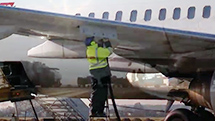
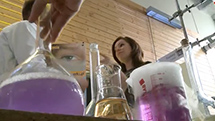
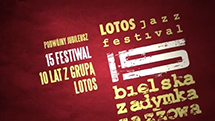
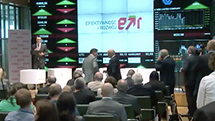



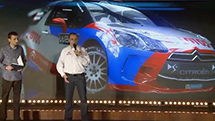


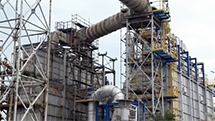
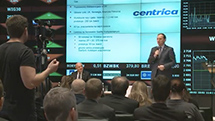
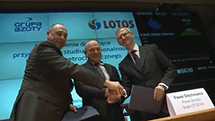
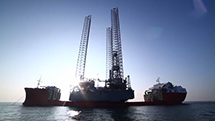
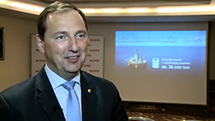
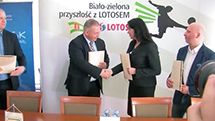
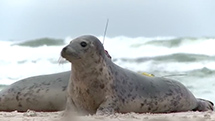

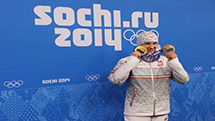
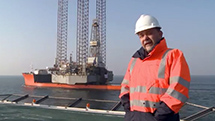
 E-mail
E-mail Facebook
Facebook Google+
Google+ Twitter
Twitter